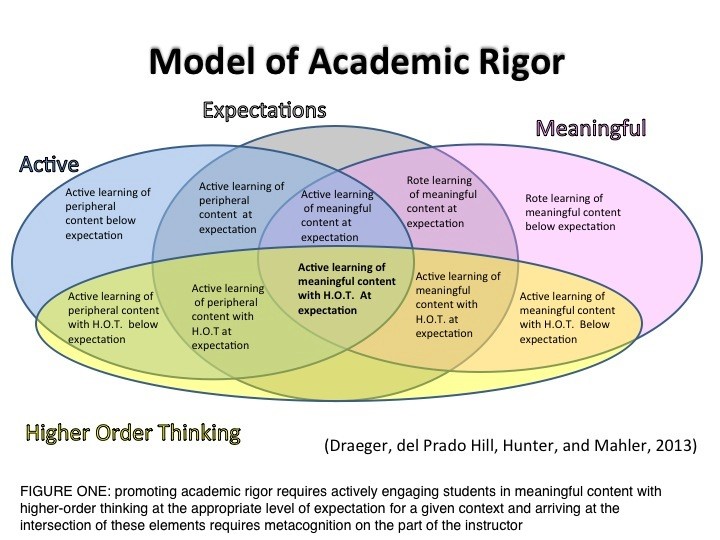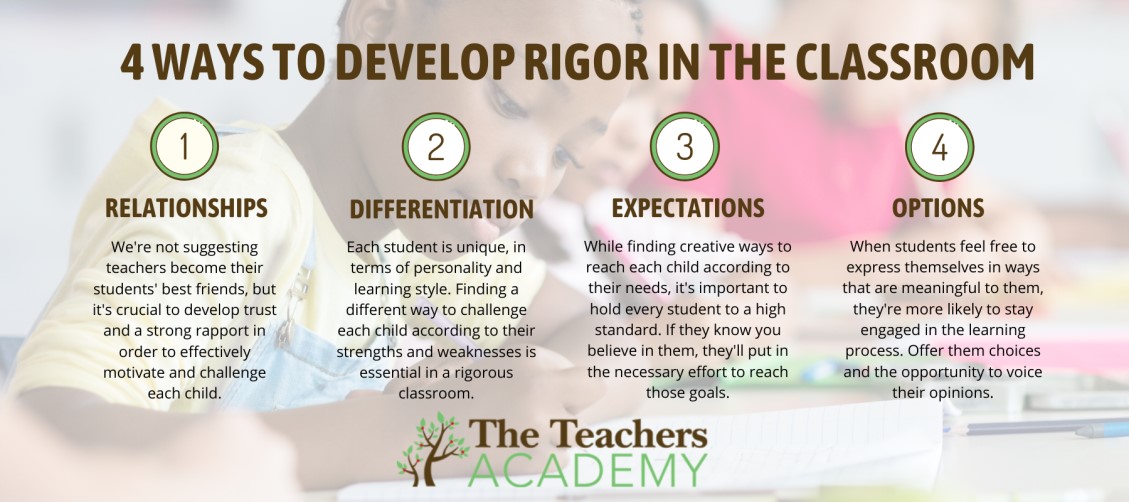
Academic Rigour: What Is It And Why You Should Be Aware Of It?
Academic rigor is a buzzword among teachers and parents, but what exactly it entails is not clear. While some schools discuss how much their students learn, others focus on how much time their kids spend on homework at night, both types of institutions describe rigor. If you're thinking about applying to a few different private schools, you'll probably find that each one has a different meaning. Hence, it's crucial to understand the differences between the various ‘academically rigorous’ curricula and what inquiries to make of private schools to assist you in selecting the best fit for your child. Here is everything you should know about it.
What Is Academic Rigour?
Academic rigor can take many different forms. It involves creating curricula and teaching strategies that challenge students to engage in critical thinking, evaluate material, and apply what they have learned to practical situations. Students must exhibit higher-order thinking abilities on demanding tasks and tests, such as analyzing arguments, synthesizing information, and solving challenging issues.

Establishing an atmosphere that promotes discussion, teamwork, and the pursuit of excellence is another aspect of rigor. It pushes students to actively connect with the content and go beyond memorization, encouraging a passion for learning and a quest for knowledge.
Hey, do you follow us on Social Media? We regularly share upgraded educational content, tips, feedback and more. Check us out by clicking the profiles here - Facebook / Twitter / LinkedIn / Pinterest / Instagram / YouTube
Why Is Academic Rigour So Hard To Achieve?
It might be difficult to achieve academic rigor in the classroom for several reasons:
- First of all, it necessitates meticulous preparation and deliberate curriculum design. Instructors must choose difficult material, establish acceptable learning objectives, and provide students with chances to put their newfound knowledge to use.
- Second, the adoption of rigorous instructional practices necessitates a change in teaching styles from conventional to more student-centered. This shift can be difficult and calls for continued assistance and professional growth.
- Additionally, the adoption of rigorous procedures can also be hampered by time restraints and outside demands like standardized testing.
To overcome these obstacles, educators must collaborate, be dedicated to ongoing development, and prioritize fostering a safe learning environment that promotes academic rigor.
What Is An Academically Rigorous Task?
An assignment or exercise that pushes students to use their knowledge, think critically, and solve complicated problems is considered rigorous. Students must do more than just memorize facts or repeat them.
Instead, they must analyze, assess, and synthesize the data to draw relevant conclusions. Difficult assignments frequently incorporate diverse viewpoints, open-ended questions, and real-world scenarios to push students to think critically and get a better comprehension of the material.
How Can Teachers Get Students Engaged For Academic Rigour?

Here are a few ways teachers can get students to learn and participate in academic rigor:
- Set The Standard
It is common knowledge that you hold your students to an implicit level of excellence. Students are occasionally given detailed explanations of these criteria through instructions, guidelines, examples, and rubrics. These criteria aren't always clear. Making sure that you explicitly show students what the intended outcome is is crucial to setting the right level of rigor in your classroom.
- Support Rigorous Achievement
Excellent instructors must not only uphold a high quality to ensure that students learn successfully but also make sure that they are assisting every student in gradually approaching the intended level of achievement. Regardless of the subject or skill they are teaching, teachers need to always make sure they have the necessary resources and lesson plans.
- Validate The Achievement
Teachers cannot only 'teach' and then expect their students to 'learn.' Giving students many opportunities to demonstrate their level of accomplishment concerning the specified norm is the last stage in a meaningful assessment of academic rigor in the classroom. Use a balance of formative and summative assessments or allow them the opportunity to revise their work. Homework should be given as a form of practice and it must reflect their learning progress and efforts.
How Can Teachers Handle Mistakes In A Supportive Manner?
Educators must address errors positively and encouragingly while promoting constructive struggle. Here are some strategies to think about:
- Normalize Mistakes
Stress that making errors is a normal aspect of learning and a chance to improve. Establish a culture in the classroom where taking chances is encouraged and errors are seen as teaching opportunities.
- Offer A Safe Environment
Encourage pupils to share their errors in a classroom setting that is encouraging and judgment-free. Promote candid communication and give students the chance to grow from one another's mistakes.
- Provide Feedback And Guidance
Give students prompt, detailed criticism that explains their errors and makes recommendations for how to do better. Instead of concentrating only on the result, emphasize the process by outlining opportunities for improvement and overcoming obstacles.
Understand The Essence Of Academic Rigour
Teachers with a degree in Master of Arts in Education with Teaching Technology may create demanding learning environments that encourage students to think critically, solve issues creatively, and pursue rigorous intellectual interests. Students can also understand how academic rigor can improve their learning process and provide them with the skills and competencies they need to succeed in a world that is becoming more competitive and complicated.
We believe education should be accessible for everyone. That’s why we don’t charge for our blogs. Find the right course that will help you in your career with us, contact us at +66-21055721. You can mail us at act@asiancollegeofteachers.com

